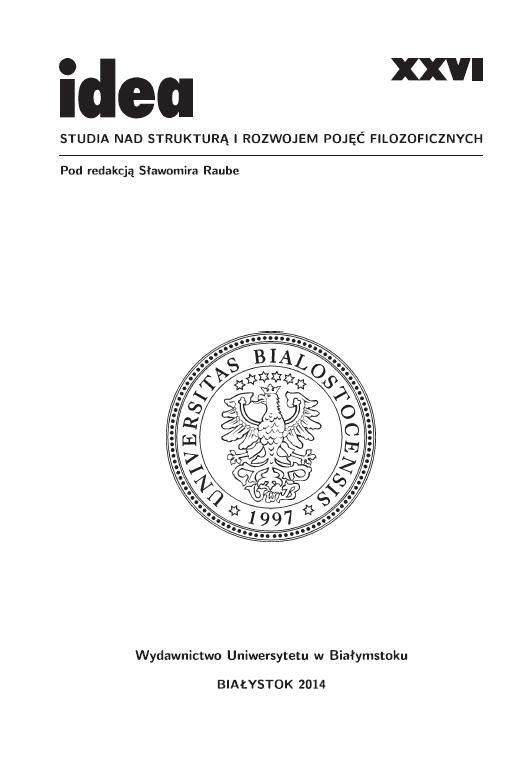Kultura jako ekwilibium. Krytyczna filozofa Ernsta Cassirera
Culture as Equilibrium. Cassirer’s Critical Philosophy of Culture
Author(s): Sławomir RaubeSubject(s): Philosophy, History of Philosophy
Published by: Wydawnictwo Uniwersytetu w Białymstoku
Keywords: unity of culture; cultural dimension; spiritual activity; freedom; society
Summary/Abstract: Cassirer was nearly always concerned with technical epistemological problems and philosophy of science, but in the last decades of his life he turned his attention to the history of ideas and culture. He was aware that culture also involves other aspects, such as mythical thinking, social needs to build up an effective and just society, as well as artistic views. At that time he began to perceive culture as a symbolic equilibrium of many dimensions growing out of man’s spiritual activity: myth, religion, language, art, science are conceived of as specific functions of consciousness. Cassirer expressed such ideas earlier, before he left Germany; for example in his work Freiheit und Form (1916) and Philosophie der symbolischen Formen (the 1920s); but after 1933 his philosophy of culture was becoming more conscious of the dangers against freedom and democracy. Cassirer’s philosophy of culture can be seen as an attempt at understanding what it means to be human, what freedom and true society are.
Journal: Idea. Studia nad strukturą i rozwojem pojęć filozoficznych
- Issue Year: 2014
- Issue No: XXVI
- Page Range: 143-155
- Page Count: 13
- Language: Polish

